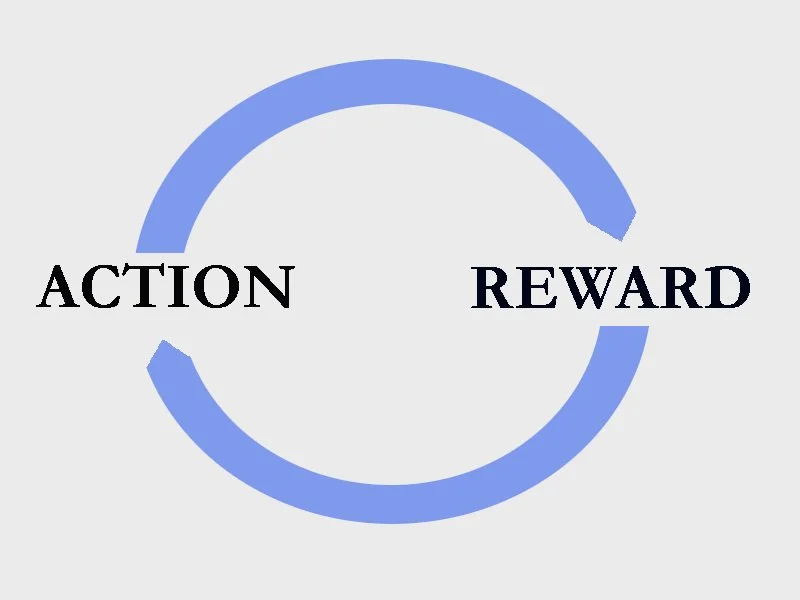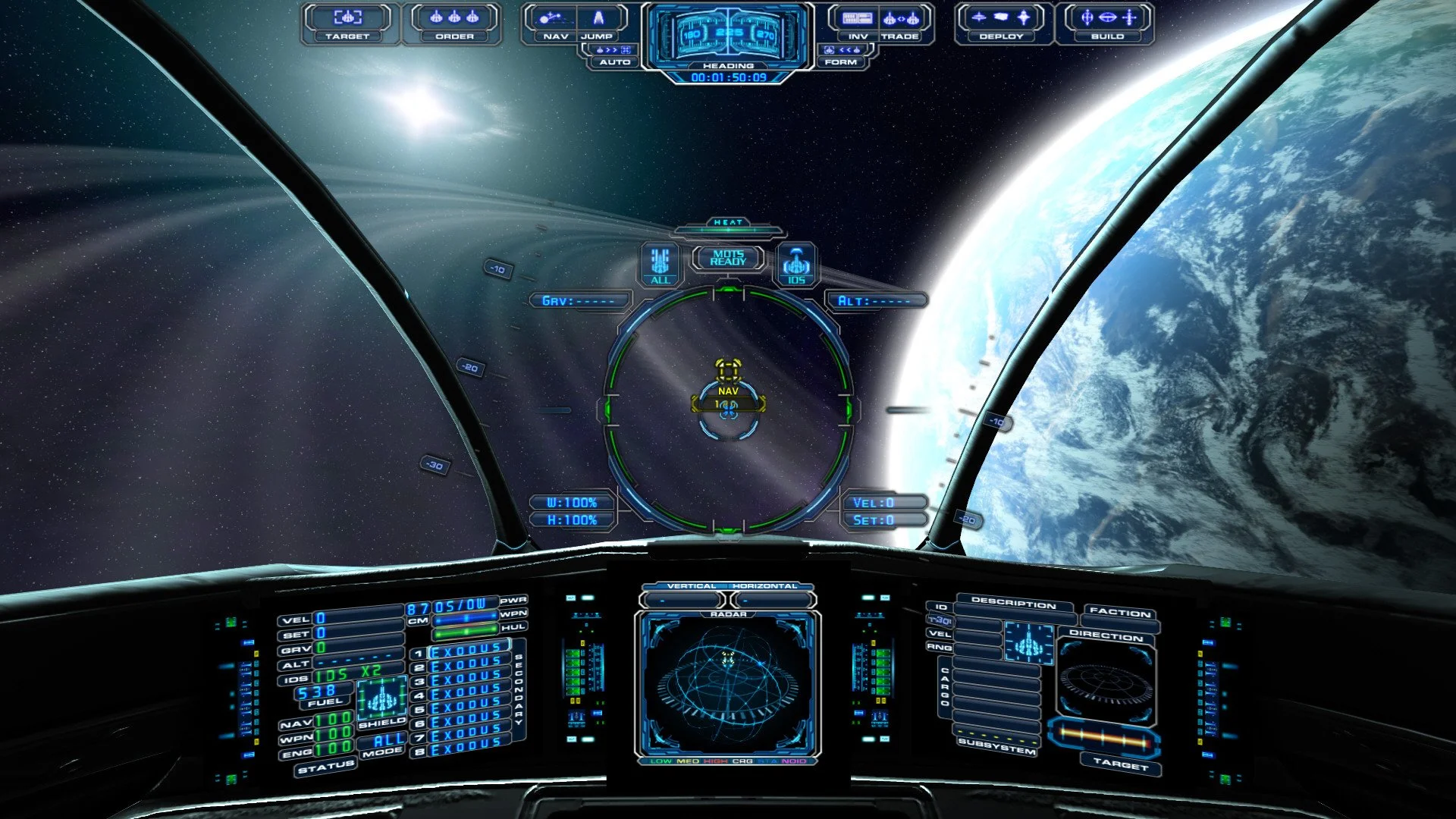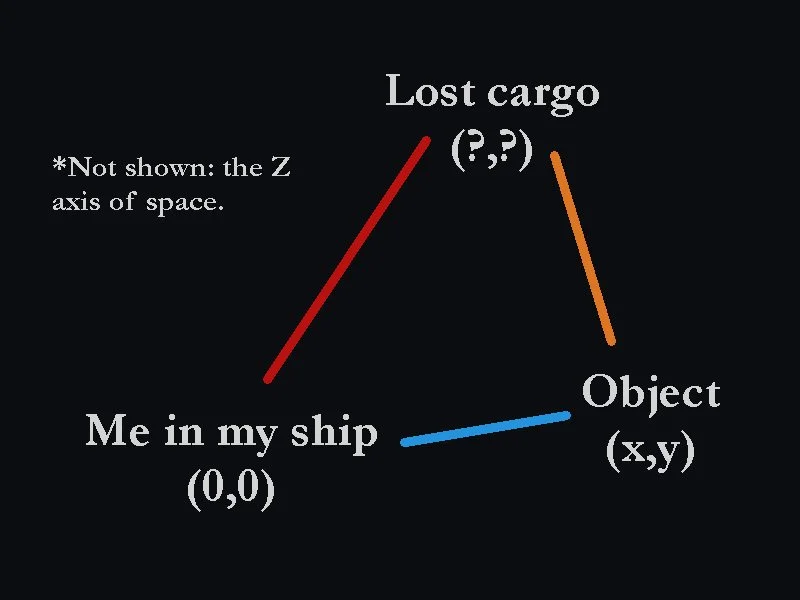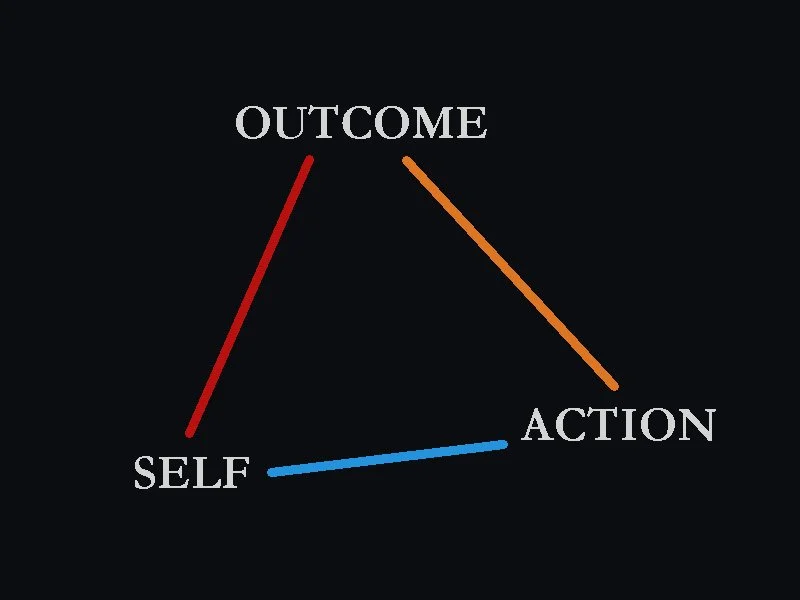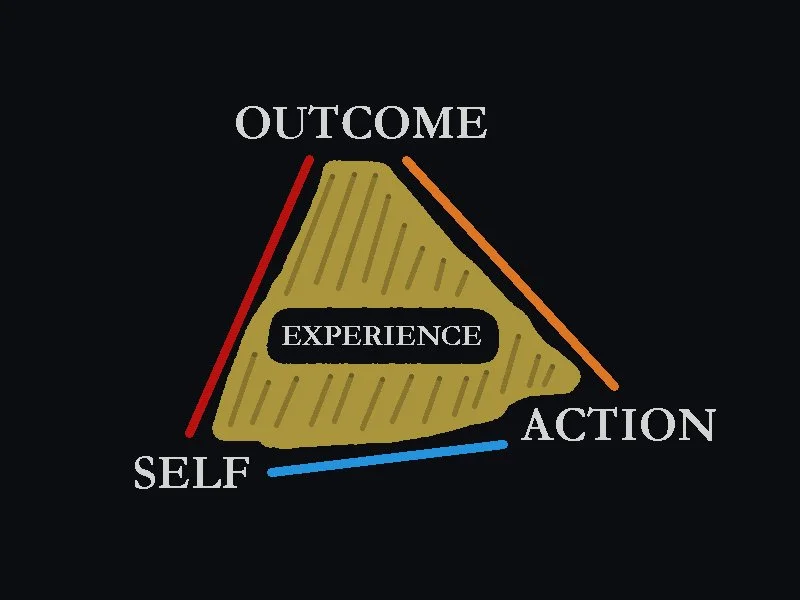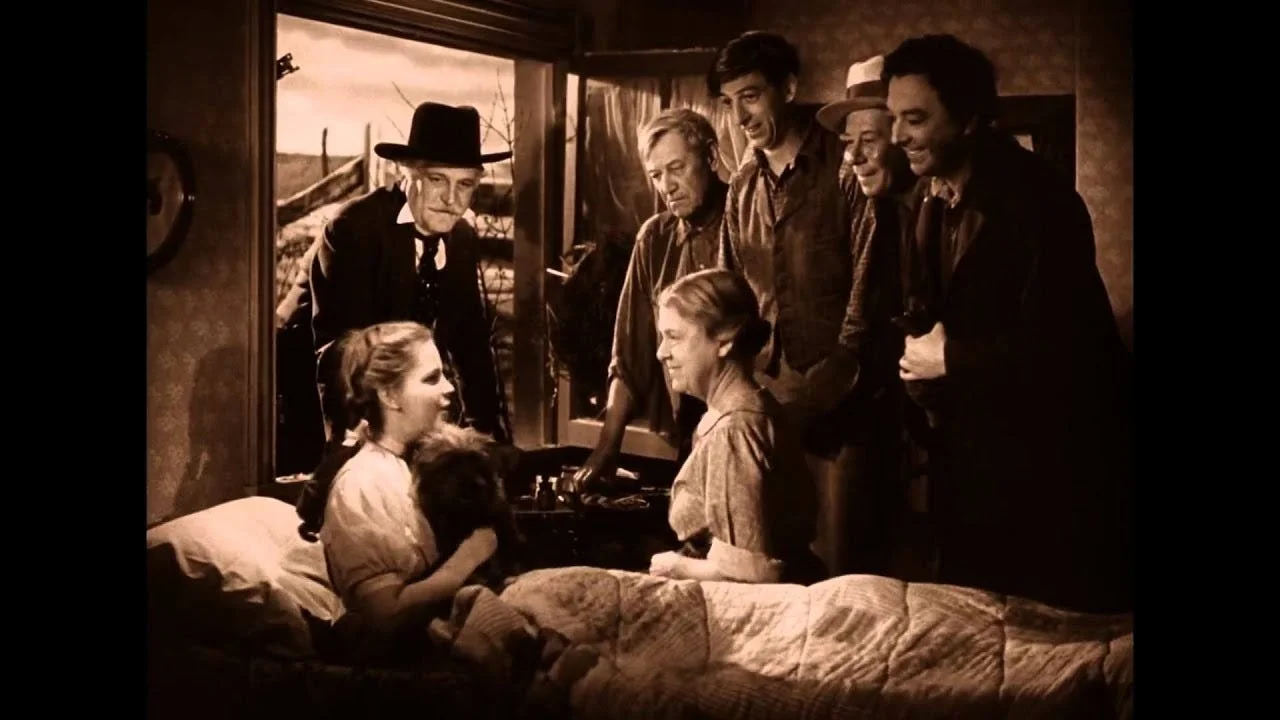Shaping Ourselves
If I saw this outside of my window, I’d go straight back to bed.
In the Arts, one of the core fundamentals is the balance between tension and release. The most simple example is in storytelling. In the Wizard of Oz, Dorothy is trapped in the house when the tornado comes - a scene of high energy, emotional and literal turbulence, uncertainty in both Dorothy and the viewer, and above all? Tension.
The tornado ultimately passes and Dorothy emerges from the house largely unharmed (though we can’t say the same for the Wicked Witch of the East). This is the release; the relief we all feel after such a tumultuous time just moments before.
I wonder what the zoning laws are like in Oz. This surely breaks the building codes.
The Tension-Release duality is found in every story throughout time, from Aesop’s Fables to the Marvel Cinematic Universe. But it is also found in music (the V-I progression is the low-hanging fruit here), in visual art (I imagine van Gogh’s Starry Night would be far less interesting without the big dark pillar rising into the swirling night sky), in dance, in poetry, in video games, so on and so forth. Art in any form exists because of the duality of tension and release. It drives not the art itself, but rather controls the emotion which fuels the art. That’s the key.
Each artistic discipline has its own means of using this duality. In music, a common practice is the dominant to tonic harmony (the V-I mentioned earlier). In visual art, design elements are a core focus (shape, form, color, lines, etc.). In stories, it is often about action and consequence. In video games, an interactive medium, it is player action and reward.
The Action-Reward cycle, on repeat until the sun burns out.
I was recently thinking about all of this and how it might apply to daily life. The most one-to-one version of the Tension-Release duality is the video game. When we play a video game, a large part of the fun is what we get out of it - the reward, be it the experience of play or something strictly within the game. Maybe both. We play Pac-Man because when we move the little yellow guy around the maze to eat the little yellow pellets, we gain points and clear the level (unless the ghosties get us first). Player action and the reward that follows.
It’s fair to say that this is wholly applicable to our own real-life lives. At the most simple level, we take action and then we get something out of said action. And, depending on the action we take, what we experience as a result will be good or bad: we choose to bathe and then we smell clean, we choose to skip breakfast and then by lunch we are super hungry and have trouble focusing.
Here’s a little not-so-secret: our entire day is filled with cycles of action/consequence. Little decisions. Big decisions. Short-term consequences. Long-lasting consequences. It’s just how it is. Even if we were to lay motionless, that is an action in and of itself which will - you guessed it! - have consequences.
I have to say, though: in thinking about this - the duality of action/consequence - it seemed… too simple. As though it was missing something. Something was unaccounted for, like buying a thrifted puzzle and building it only to find the last piece is missing. There had to be more than a simple point A to point B model for this topic. Right?
I thought and I thought, and I thought some more. And then it hit me: the missing piece? Ourself.
Yes! The action/consequence duality does not take into account our lived experiences! I mean, why do we choose to have breakfast instead of skipping it? Because yesterday we skipped breakfast and we were hangry all morning and unfocused all day. That’s a crucial piece of information as to why today we are having breakfast.
Look at all of the widgets!
When I was a teenager, there was a computer game I played called Evochron Mercenary. It was a space simulation game that attempted to accurately simulate space flight and gravity (or lack thereof - think 2001: A Space Odyssey rather than Star Wars). One of the cool and more memorable parts of the game was getting a signal from a lost piece of cargo, its exact coordinates unknown and adrift in the vacuum of space. To find the lost cargo, the player was given the coordinates of a nearby object (an asteroid or space junk or something similar) and the distance from that object to the lost cargo. Based on the player’s coordinates, the distance between you and the cargo, the object’s coordinates and the distance between it and the cargo, the player could calculate - in real life, off the screen - the coordinates of the lost cargo to go retrieve it. I learned that this was called triangulation, which I calculated several times while playing the game. #Learning #Education
An oversimplified diagram of triangulating in Evochron Mercenary.
The action/consequence duality I’ve been discussing focuses on and can truly only describe input and outcome, much like dominoes knocking over one after the other. Nothing is learned or retained (other than the state of being standing or having fallen over). When we add ourself to the duality, however, this shortcoming is remedied.
The duality, then, turns into a trinity (in a secular sense for the purpose of this writing). It begins with the Self, which includes the individual in their current state of existence, including their abilities, resources, knowledge, connections, and lived experiences. Using Evochron Mercenary, this is the player in the example.
Second is the Action. This is the individual’s plans, actionable steps, methods, systems, and decisions. Importantly, the Action also includes the individual’s goals, because a goal is part of a plan and not yet made a reality. This is the known object in the Evochron Mercenary example.
Third is the Outcome: the results, reconciliations, payoffs, rewards, and/or consequences of the Action(s) taken. The Outcome is not necessarily the goal realized. Goals care about the Outcome, but the Outcome does not care about goals. Based on the Action(s) taken, a goal may or may not be accomplished. Either way, there will always be an Outcome. This is the lost cargo in Evochron Mercenary. We don’t know what it is until we put in the work to find it for ourselves.
The trinity (secular).
Once I pencil-and-paper drew out this relationship - this trinity - the concept became deeper. More engaging. Compelling. But it wasn’t quite complete. What about the space between all three points?
When we bring ourselves, we bring with us our capabilities, our knowledge, and our interests. These influence not only the goals we wish to achieve but also the steps we take in the attempt to accomplish our goals. And then, eventually, we see results from what we set out to do. While the Outcome completes the trinity, successful or not, and influences the next version of ourselves in the next trinity (whatever it may be), the space between all three points is just as important. It is the Experience: what we witness, what we feel, the knowledge we learn, the resources we gain, the new skills we acquire. Everything that, going back to game terms, “levels us up” for whatever comes in the next trinity.
The trinity, shaded with Experience.
There are, of course, elements beyond our control that can and will influence the Outcome, for better or worse. Illness, employment layoff, a promotion, severe weather, car trouble, finding $20 on the ground, technical difficulties, professional competition, a reply after 100 cold emails, and even a misstep on the sidewalk can all be factors at play that exert themselves on our trinity. It’s unavoidable.
But the good news? All of the variables beyond our control contribute to our Experience. And, if we are considerate of ourselves enough to pay attention, we will glean some insight from those external forces and apply it to our future situations. Rolling with the punches, as the saying goes.
If life was always as cut and dry as “I’m going to set a goal, do X, Y, and Z, and then the goal will be accomplished!” then… it would be pretty boring. Maybe even meaningless, to a degree. How many people have wanted to climb the corporate ladder, only to be shuttered by a better candidate, or nepotism, or an external hire? The answer is a lot of people.
Consider, though, how many people were laid off from (or just straight up quit) their jobs during the Covid pandemic and started their own business. Consider, too, how many people have done this outside of the pandemic years, before and after. Their jobs might not have worked out in the way they had hoped, but they rolled with the punches and created new opportunities for themselves.
Goals are great and we should all have them, small or grand. Recognizing how to reach those goals through smaller steps is even better. Being able to acknowledge that our goals might not be met in the way we wish is… difficult. It’s a skill that some are better at than others, and a skill that we would all do well to improve - myself included.
So, yeah, be excited when it works out better than you expected. Be frustrated when it doesn’t work out. When that happens, though - and it will happen - keep in mind that a perceived “failure” holds more lessons than if the situation were deemed a success.
The Experience of being hangry and unfocused after skipping breakfast yesterday is a lesson to eat breakfast today. You haven’t bathed for three days and the lesson is: you stink if you don’t bathe regularly. Dorothy’s Experience in Oz came with the lesson that “there is no place like home.”
Dorothy awakens!
We can’t always control the Outcome of our Actions. But we can always control our Actions and, more crucially, the application of our Experience to our Actions.


